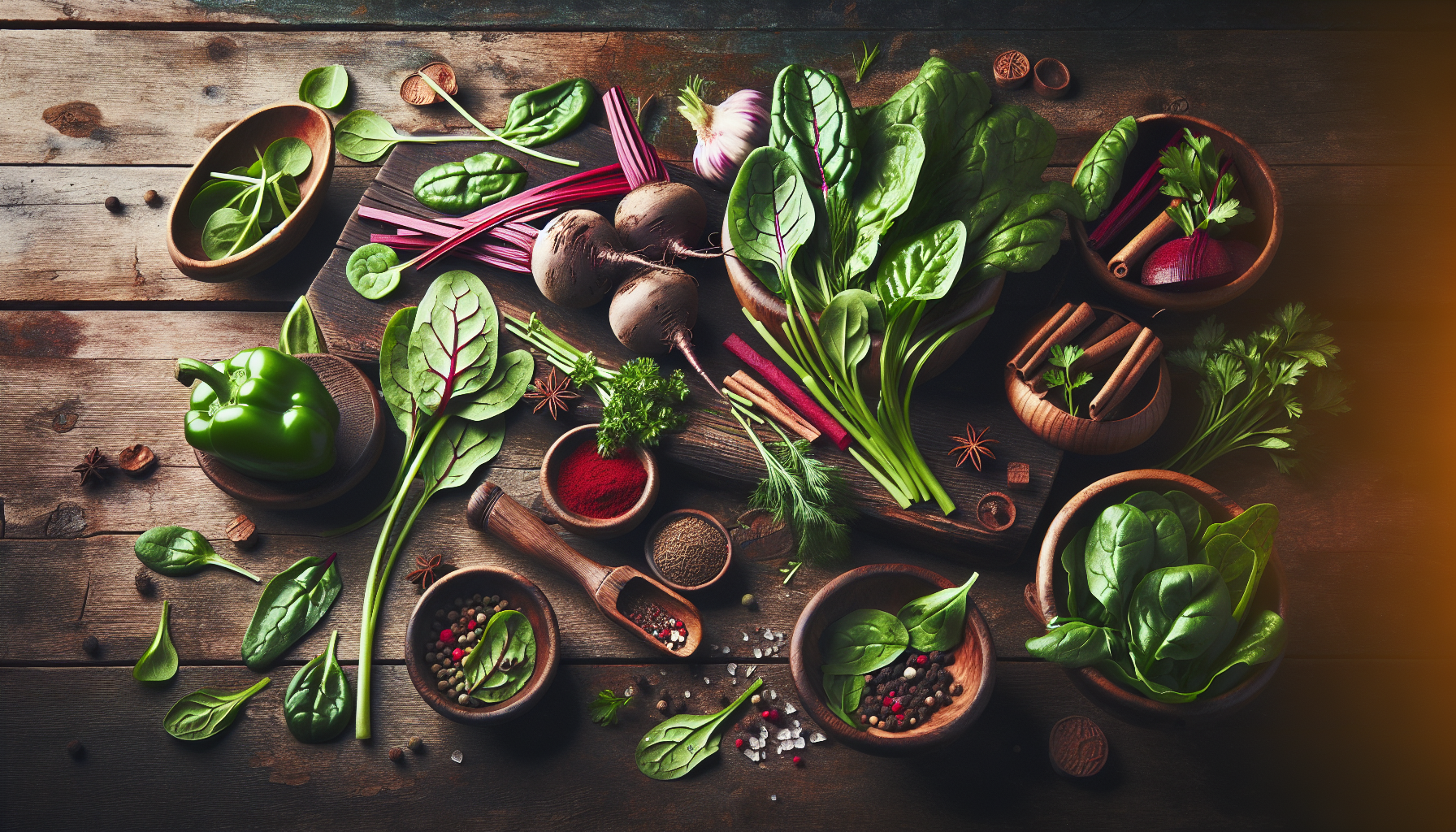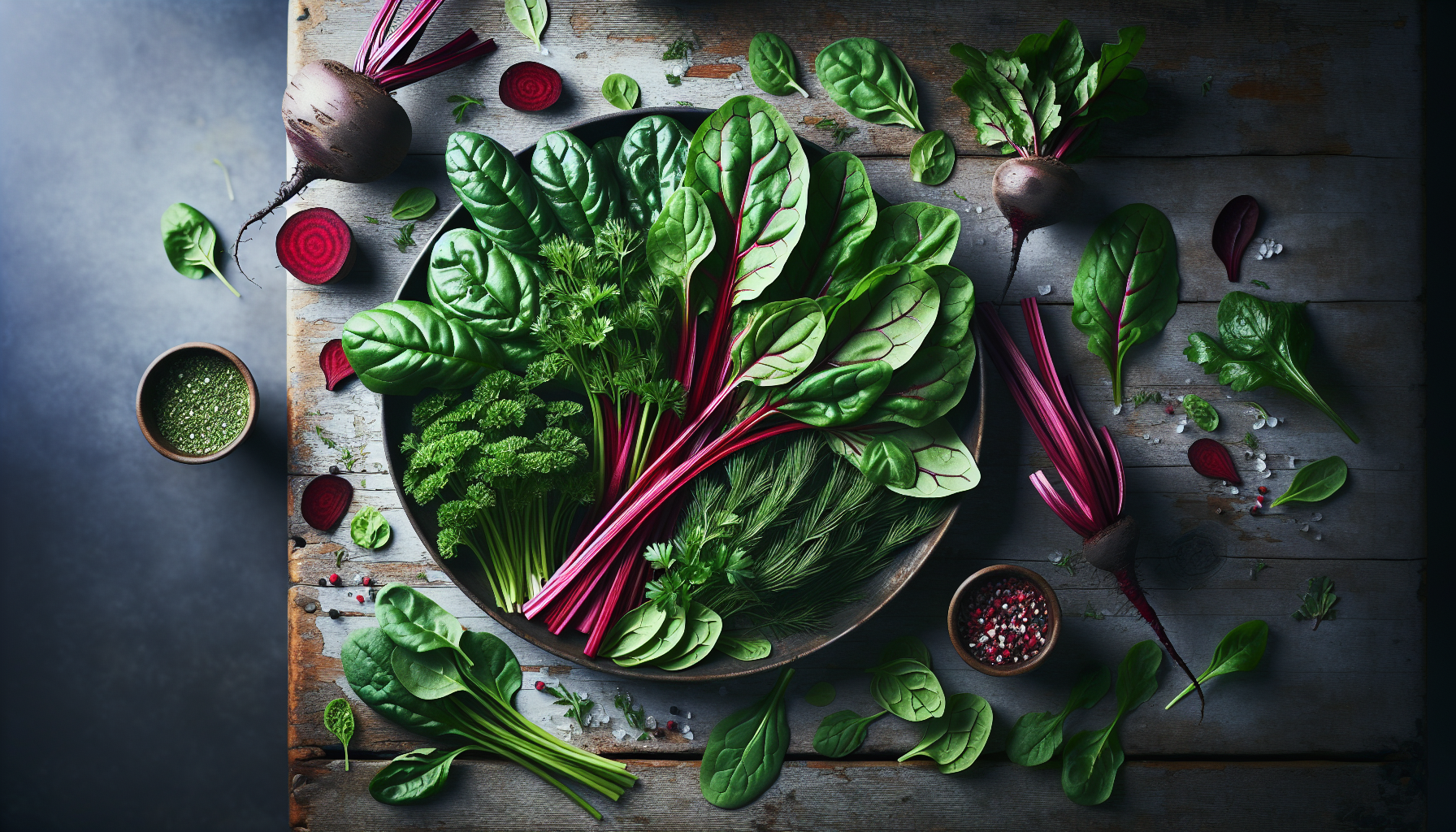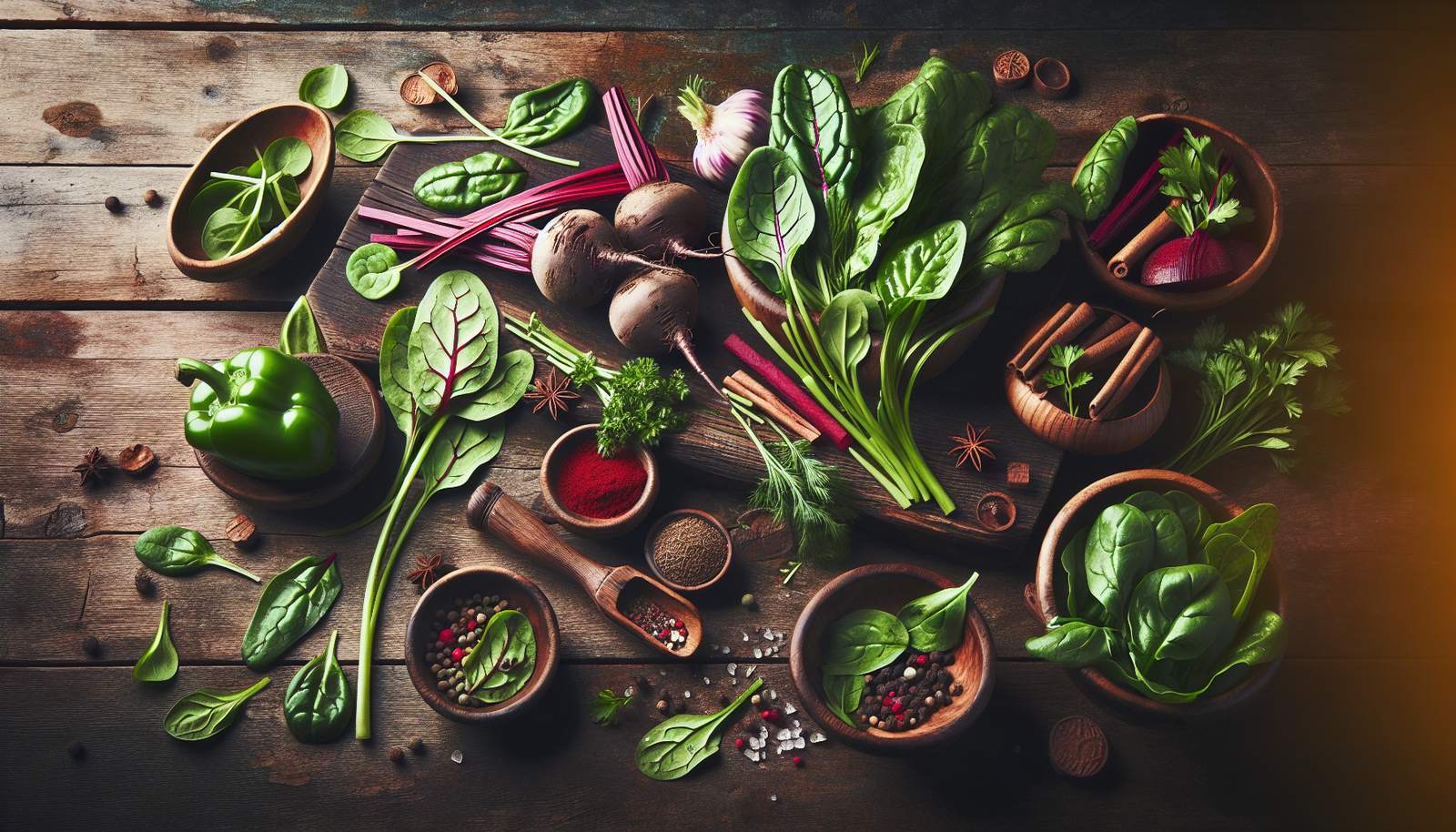What do you know about the role of oxalates in your favorite herbs and spices? It’s likely not the most exciting topic, but understanding oxalates can make a difference in how you navigate your culinary adventures. Let’s get into it.
What Are Oxalates?
Oxalates, or oxalic acid, are naturally occurring compounds found in various plants, including many herbs and spices you might use daily. They form in plants as a way to regulate calcium and can bind with calcium in your body, which may lead to the formation of kidney stones in sensitive individuals. It might sound alarming, but having some knowledge about oxalates can help you make informed choices based on your health needs.
The Role of Herbs and Spices in Our Diet
Herbs and spices not only add flavor but also boast potential health benefits. Many are rich in antioxidants, vitamins, and minerals. However, their oxalate content can vary widely. Knowing which herbs and spices are higher in oxalates can assist you in balancing the health benefits with any potential risks.
Why Should You Care About Oxalates?
If you’re prone to kidney stones or other health issues related to oxalate consumption, this becomes crucial. The truth is, many people don’t experience adverse effects from oxalates, but for those who do, moderation is key.

Common Herbs and Their Oxalate Content
Understanding the oxalate levels in different herbs and spices can guide you in your cooking choices. Here’s a breakdown:
| Herb/Spice | Oxalate Level |
|---|---|
| Basil | Low |
| Parsley | Moderate |
| Cilantro | Low |
| Thyme | Low |
| Sage | Moderate |
| Oregano | Low |
| Black Pepper | Moderate |
| Cinnamon | Low |
| Turmeric | Moderate |
| Cloves | High |
Herbs with Low Oxalate Levels
Finding herbs that are low in oxalates can allow you to enjoy cooking without the worry of health repercussions. Basil, cilantro, thyme, and oregano are great options that can enhance the flavor of your dishes without posing risks.
Herbs with Moderate to High Oxalate Levels
Sage, black pepper, turmeric, and clove have been noted for their higher oxalate content. While you don’t necessarily need to avoid them altogether, being mindful of your overall intake is beneficial.
Cooking with Herbs and Spices: Practical Tips
Cooking with herbs and spices is an art form that can elevate any meal. Here are some tips to make the most of these flavor-packed plants while being mindful of oxalates.
Use a Variety of Flavors
By mixing low-oxalate herbs with those that are higher, you can keep taste and health in balance. Consider combining parsley with basil or thyme for a flavorful, low-oxalate herb mix.
Fresh vs. Dried
Generally, fresh herbs have lower oxalate levels than dried herbs, which are often more concentrated. This is something to keep in mind when you’re trying to get the most flavor with minimal risk.
Cooking Techniques Matter
Certain cooking methods can affect oxalate levels. For instance, boiling vegetables can help reduce oxalates. While this doesn’t directly apply to herbs, it unfolds the idea that how you prepare food can influence its overall impact on health.

The Health Benefits of Herbs and Spices
Beyond the consideration of oxalates, the health benefits of herbs and spices are worth discussing.
Antioxidant Properties
Many herbs and spices are loaded with antioxidants, which can help combat oxidative stress, lower inflammation, and protect against chronic diseases. For example, turmeric contains curcumin, known for its anti-inflammatory effects.
Nutritional Contributions
Herbs and spices can elevate nutritional content by providing essential vitamins and minerals. Fresh herbs are often rich in Vitamin K, folate, and dietary fiber, which contribute to overall well-being.
Can You Avoid Oxalates Completely?
You might be wondering if it’s possible — or even necessary — to eliminate oxalates from your diet entirely. The short answer is no. While you can reduce your intake, completely avoiding oxalates may not be realistic or beneficial.
Balance is Key
Striking a balance between enjoying the health benefits of herbs and spices while keeping an eye on oxalate content is essential. If you’re a healthy individual, you can likely enjoy a variety of herbs and spices without concern. However, if oxalates pose a problem for you, being savvy about your choices will serve you well.

Potential Health Risks of High Oxalate Intake
For individuals sensitive to oxalates, consuming high-oxalate foods can lead to health issues. Let’s unpack some of the risks involved.
Kidney Stones
One of the most common concerns related to oxalate intake is kidney stones, particularly calcium oxalate stones. A high-oxalate diet increases the risk for those predisposed to this condition. Symptoms can be painful and vary from severe discomfort to nausea.
Nutrient Absorption Issues
High oxalate foods can interfere with the absorption of certain nutrients, particularly calcium. If you consume a diet excessively high in oxalates, you might not be getting all the essential nutrients your body needs.
What If You Have a History of Kidney Stones?
If you have a history of kidney stones, keeping track of your dietary oxalate intake becomes even more vital.
Consult a Healthcare Professional
You should discuss your dietary habits with a healthcare provider, particularly a dietitian specializing in kidney health. They can offer personalized guidelines based on your specific needs.
Personalized Strategy
You might need a tailored approach to managing oxalate intake, which might include monitoring your consumption of high-oxalate herbs and spices. Finding that balance of enjoyment versus caution will be crucial.

Misconceptions About Oxalates
There are a few misconceptions floating around about oxalates that deserve clarification.
All Oxalates Are Bad
The narrative that oxalates are “bad” for everyone is misleading. Many people consume oxalates without any issues, and for some, the benefits of the foods that contain them far outweigh any potential risks.
Cooking Doesn’t Help
You might be surprised to learn that some cooking methods can alter the oxalate content of foods, reducing the concern when enjoying these ingredients. Seeking to understand how cooking affects these compounds can empower your culinary practices.
In Closing: Finding the Right Balance
While the conversation about oxalates may not be something you think about every day, staying informed can give you control over your dietary choices. You don’t have to dread your favorite herbs and spices; instead, consider them part of a balanced approach that prioritizes your health while still allowing you to enjoy delicious meals.
By being aware of the oxalate levels in your kitchen staples, you can strike the right balance. So whether you’re sprinkling basil on pasta or adding a pinch of turmeric to a curry, you can feel confident knowing how these choices fit into your overall well-being.
Choosing herbs and spices doesn’t have to be a stressor; it can be about flavors, creativity, and nourishment. With a little knowledge and awareness, you can embrace the full spectrum of culinary possibilities while keeping your health in check.


